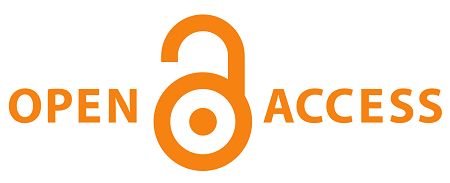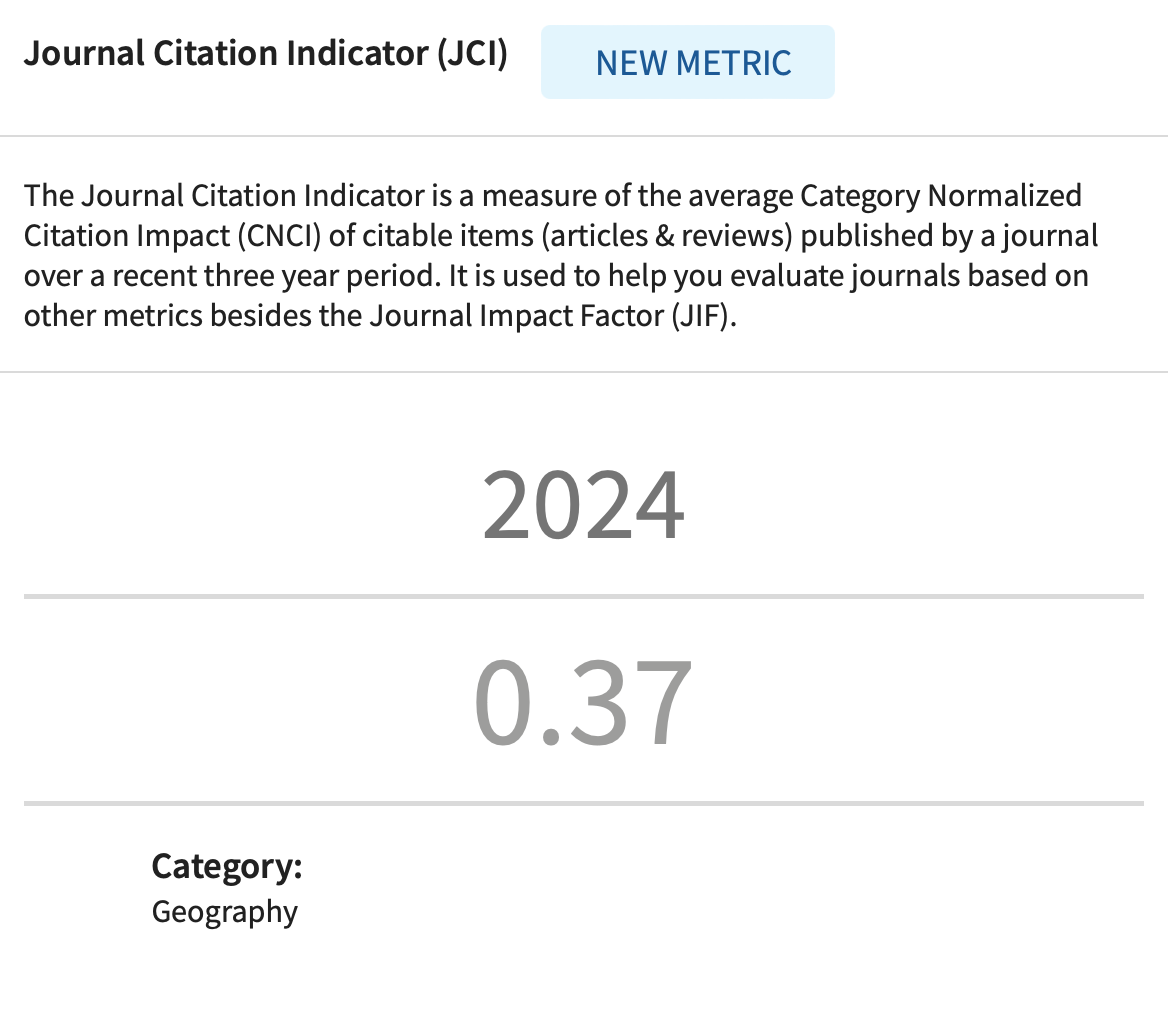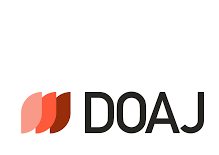USE OF TRADITIONAL KNOWLEDGE TO FORECAST FLOOD: EVIDENCE FROM RIVERINE FLOODPLAIN IN BANGLADESH
DOI:
https://doi.org/10.2298/IJGI240802003MKeywords:
traditional knowledge, knowledge transmission, flood, people living near the river, BangladeshAbstract
Traditional knowledge (TK) on disaster provides useful forecasting information for the hazard-prone communities. However, the documentation of TK is inadequate in the context of Bangladesh, putting it at risk of extinction. The goal of the study is to evaluate the ability of the people living near the river to forecast floods using their TK. This study collected data from the people living near the river in Bangladesh in 2019 using a questionnaire survey with 377 respondents and focus group discussions. The data from the questionnaire survey was assessed using descriptive and inferential statistical tests. Data analyses were performed in SPSS version 26. Respondents' awareness of TK to forecast floods in riverine contexts was classified into categories: weather phenomena, cloud formation, rainfall patterns, river behavior, and observing plants and animals’ behavior. This study revealed that 97.3% of respondents were aware of at least one cue to forecast flood hazards in their area. The findings suggested that the respondents' gender and profession significantly influenced their awareness of using TK to forecast floods by observing the behaviors of plants and animals. For the people living near the river, TK plays a crucial role as they reside in remote areas with inadequate national-level warning systems. These findings will contribute to the current discourse regarding the integration of TK in disaster management practices.
Article metrics
References
Agrawal, A. (1995). Dismantling the Divide Between Indigenous and Scientific Knowledge. Development and Change, 26(3), 413–439. https://doi.org/10.1111/j.1467-7660.1995.tb00560.x
Ahmed, K. M. (2014). Tista Floodplain. In Banglapedia—The National Encyclopedia of Bangladesh. Asiatic Society of Bangladesh. http://en.banglapedia.org/index.php?title=Tista_Floodplain
Anik, S. I., & Khan, M. A. S. A. (2012). Climate change adaptation through local knowledge in the north eastern region of Bangladesh. Mitigation and Adaptation Strategies for Global Change, 17(8), 879–896. https://doi.org/10.1007/s11027-011-9350-6
Audefroy, J. F., & Sánchez, B. N. C. (2017). Integrating local knowledge for climate change adaptation in Yucatán, Mexico. International Journal of Sustainable Built Environment, 6(1), 228–237. https://doi.org/10.1016/j.ijsbe.2017.03.007
Azad, M. J., & Pritchard, B. (2023). The importance of women’s roles in adaptive capacity and resilience to flooding in rural Bangladesh. International Journal of Disaster Risk Reduction, 90, Article 103660. https://doi.org/10.1016/j.ijdrr.2023.103660
Bangladesh Bureau of Statistics. (2013). Population & housing census- 2011: Community Report: Gaibandha/ Nilphamari/ Rangpur. Bangladesh Bureau of Statistics.
Briggs, J. (2013). Indigenous knowledge: A false dawn for development theory and practice? Progress in Development Studies, 13(3), 231–243. https://doi.org/10.1177/1464993413486549
Chisadza, B., Tumbare, M. J., Nyabeze, W. R., & Nhapi, I. (2015). Linkages between local knowledge drought forecasting indicators and scientific drought forecasting parameters in the Limpopo River Basin in Southern Africa. International Journal of Disaster Risk Reduction, 12, 226–233. https://doi.org/10.1016/j.ijdrr.2015.01.007
Chowdhury, M. S. H., Halim, M. A., Muhammed, N., Koike, M., & Biswas, S. (2009). Indigenous Knowledge in Natural Resource Management by the Hill People: A Case of the MRO Tribe in Bangladesh. Forests, Trees and Livelihoods, 19(2), 129–151. https://doi.org/10.1080/14728028.2009.9752660
Codjoe, S. N. A., Owusu, G., & Burkett, V. (2014). Perception, experience, and indigenous knowledge of climate change and variability: The case of Accra, a sub-Saharan African city. Regional Environmental Change, 14(1), 369–383. https://doi.org/10.1007/s10113-013-0500-0
Fernández-Llamazares, Á., Lepofsky, D., Lertzman, K., Armstrong, C. G., Brondizio, E. S., Gavin, M. C., Lyver, P. O., Nicholas, G. P., Pascua, P., Reo, N. J., Reyes-García, V., Turner, N. J., Yletyinen, J., Anderson, E. N., Balée, W., Cariño, J., David-Chavez, D. M., Dunn, C. P., Garnett, S. C., . . . Vaughan, M. B. (2023). Scientists’ Warning to Humanity on Threats to Indigenous and Local Knowledge Systems. Journal of Ethnobiology, 41(2), 144–169. https://doi.org/10.2993/0278-0771-41.2.144
Hiwasaki, L., Luna, E., & Marçal, J. A. (2015). Local and indigenous knowledge on climate-related hazards of coastal and small island communities in Southeast Asia. Climatic Change, 128(1–2), 35–56. https://doi.org/10.1007/s10584-014-1288-8
Howell, P. (2003). Indigenous Early Warning Indicators of Cyclones: Potential Application in Coastal Bangladesh. Benfield Greig Hazard Research Centre.
Huntington, H. P. (1998). Observations on the Utility of the Semi-directive Interview for Documenting Traditional Ecological Knowledge. Arctic, 51(3), 237–242. https://doi.org/10.14430/arctic1065
Irfanullah, H. M., & Motaleb, M. A. (2011). Reading nature’s mind: Disaster management by indigenous peoples of Bangladesh. Indian Journal of Traditional Knowledge, 10(1), 80–90. http://nopr.niscpr.res.in/handle/123456789/11060
Islam, M. R., Siti Hajar, A. B. A., & Haris, A. (2013). Local Knowledge in the Lips of Globalization: Uncertainty of Community Participation in NGO Activities. Revista de Cercetare si Interventie Sociala, 43, 7–23. https://www.rcis.ro/images/documente/rcis43_01.pdf
Kagunyu, A., Wandibba, S., & Wanjohi, J. G. (2016). The use of indigenous climate forecasting methods by the pastoralists of Northern Kenya. Pastoralism, 6(1), Article 7. https://doi.org/10.1186/s13570-016-0054-0
Kaje, B. K., & Thomas, K. A. (2023). Indigenous Knowledge in Sustainable Development: A Mao Naga Perspective. In G. K. Panda, U. Chatterjee, N. Bandyopadhyay, M. D. Setiawati, & D. Banerjee (Eds.), Indigenous Knowledge and Disaster Risk Reduction (pp. 257–278). Springer International Publishing. https://doi.org/10.1007/978-3-031-26143-5_12
Khan, N. A., & Rashid, A. Z. M. M. (2006). A study on the indigenous medicinal plants and healing practices in Chittagong Hill Tracts (Bangladesh). African Journal of Traditional, Complementary and Alternative Medicines, 3(3), 37–47. https://doi.org/10.4314/ajtcam.v3i3.31165
Kniveton, D., Visman, E., Tall, A., Diop, M., Ewbank, R., Njoroge, E., & Pearson, L. (2015). Dealing with uncertainty: Integrating local and scientific knowledge of the climate and weather. Disasters, 39(s1), s35–s53. https://doi.org/10.1111/disa.12108
Kreimer, A., & Arnold, M. (2000). Managing Disaster Risk in Emerging Economies. The World Bank.
Lauer, M., & Matera, J. (2016). Who Detects Ecological Change After Catastrophic Events? Indigenous Knowledge, Social Networks, and Situated Practices. Human Ecology, 44(1), 33–46. https://doi.org/10.1007/s10745-016-9811-3
Mafongoya, P. L., & Ajayi, O. C. (2017). Indigenous knowledge systems and climate change management in Africa. Centre for Agricultural and Rural Cooperation.
Mamun, A.-A. (2010). Understanding the Value of Local Ecological Knowledge and Practices for Habitat Restoration in Human-Altered Floodplain Systems: A Case from Bangladesh. Environmental Management, 45(5), 922–938. https://doi.org/10.1007/s00267-010-9464-8
Masinde, M. (2014). An Effective Drought Early Warning System for Sub-Saharan Africa: Integrating Modern and Indigenous Approaches. In J. P. van Deventer, M. C. Matthee, H. Gelderblom, & A. Gerber (Eds.), Proceedings of the Southern African Institute for Computer Scientist and Information Technologists Annual Conference 2014 on SAICSIT 2014 Empowered by Technology (pp. 60–69). Association for Computing Machinery. https://doi.org/10.1145/2664591.2664629
McAdoo, B. G., Moore, A., & Baumwoll, J. (2009). Indigenous knowledge and the near field population response during the 2007 Solomon Islands tsunami. Natural Hazards, 48(1), 73–82. https://doi.org/10.1007/s11069-008-9249-z
Misbahuzzaman, K. (2016). Traditional farming in the mountainous region of Bangladesh and its modifications. Journal of Mountain Science, 13(8), 1489–1502. https://doi.org/10.1007/s11629-015-3541-7
Mondal, M. S. H. (2021). Traditional Knowledge to Read Hydro-Meteorological Hazards in Teesta Floodplain, Bangladesh. In S. Kolathayar, A. Mondal, & S. C. Chian (Eds.), Climate Change and Water Security: Select Proceedings of VCDRR 2021 (pp. 179–191). Springer. https://doi.org/10.1007/978-981-16-5501-2_14
Mondal, Md. S. H., & Islam, M. S. (2017). Chronological trends in maximum and minimum water flows of the Teesta River, Bangladesh, and its implications. Jàmbá: Journal of Disaster Risk Studies, 9(1), 1–11. https://doi.org/10.4102/jamba.v9i1.373
Orlove, B., Roncoli, C., Kabugo, M., & Majugu, A. (2010). Indigenous climate knowledge in southern Uganda: The multiple components of a dynamic regional system. Climatic Change, 100(2), 243–265. https://doi.org/10.1007/s10584-009-9586-2
Pareek, A., & Trivedi, P. C. (2011). Cultural values and indigenous knowledge of climate change and disaster prediction in Rajasthan, India. Indian Journal of Traditional Knowledge, 10(1), 183–189. http://nopr.niscair.res.in/bitstream/123456789/11079/1/IJTK%2010%281%29%20183-189.pdf
Pervez, A. K. M. K., Gao, Q., & Uddin, Md. E. (2015). Rural Women’s Awareness on Indigenous Technical Knowledge: Case of Northern Bangladesh. The Anthropologist, 21(3), 415–426. https://doi.org/10.1080/09720073.2015.11891831
Rakib, M. A., Islam, S., Nikolaos, I., Bodrud-Doza, M., & Bhuiyan, M. A. H. (2017). Flood vulnerability, local perception and gender role judgment using multivariate analysis: A problem-based “participatory action to Future Skill Management” to cope with flood impacts. Weather and Climate Extremes, 18, 29–43. https://doi.org/10.1016/j.wace.2017.10.002
Roder, G., Ruljigaljig, T., Lin, C.-W., & Tarolli, P. (2016). Natural hazards knowledge and risk perception of Wujie indigenous community in Taiwan. Natural Hazards, 81(1), 641–662. https://doi.org/10.1007/s11069-015-2100-4
Šiljeg, S., Milošević, R., & Panđa, L. (2022). Public perception of the urban pluvial floods risk – Case study of Poreč (Croatia). Journal of the Geographical Institute "Jovan Cvijic" SASA, 72(2), 147–158. https://doi.org/10.2298/IJGI2202147S
Thaman, R. R., Meleisea, M., & Makasiale, J. (2002). Agricultural diversity and traditional knowledge as insurance against natural disasters. Pacific Health Dialog, 9(1), 76–85. https://pacifichealthdialog.org.fj/Volume209/No20120_20Emergency20Health20In20The20Pacific/Reprint20Review20of20drug_related20legislation20in20the20Republic20of20Fiji20Islands.pdf
Tran, P., Takeuchi, Y., & Shaw, R. (2009). Indigenous knowledge in river basin management. In R. Shaw, A. Sharma, & Y. Takeuchi (Eds.), Indigenous Knowledge and Disaster Risk Reduction (pp. 45–57). Nova Science Publishers.
Uddin, M. N., & Rahman, M. M. (2013). Traditional Ecological Knowledge on Flow and Erosion processes in the Braided Jamuna river in Bangladesh: Part-II. Indian Journal of Traditional Knowledge, 12(3), 427–440. https://nopr.niscpr.res.in/bitstream/123456789/19428/1/IJTK%2012(3)%20418-426.pdf
United Nations International Strategy for Disaster Reduction. (2015). Sendai Framework for Disaster Risk Reduction 2015-2030. United Nations International Strategy for Disaster Reduction (UNISDR). http://www.unisdr.org/we/inform/publications/43291
Warren, D. M. (1991). Using indigenous knowledge in agricultural development (Report No. WDP127). The World Bank. http://documents.worldbank.org/curated/en/408731468740976906
Warren, D. M., & Meeh, P. M. (1980). Applied Ethnoscience and a Dialogical Approach to Rural Development. In D. W. Brokensha, D. M. Warren, & O. Werner (Eds.), Indigenous Knowledge System and Development (pp. 321–327). University Press of America.
Wisner, B. (2009, June 16–19). Indigenous Knowledge and Disaster Risk Reduction [Viewpoints]. Second Session of the Global Platform for Disaster Risk Reduction, Geneva, Switzerland.
Woodward, E., Hill, R., Harkness, P., & Archer, R. (2020). Our Knowledge Our Way in caring for Country: Indigenous-led approaches to strengthening and sharing our knowledge for land and sea management. Best Practice Guidelines from Australian Experiences. https://repository.oceanbestpractices.org/handle/11329/1633
Downloads
Published
How to Cite
Issue
Section
License
Copyright (c) 2025 Journal of the Geographical Institute “Jovan Cvijić” SASA

This work is licensed under a Creative Commons Attribution 4.0 International License.











